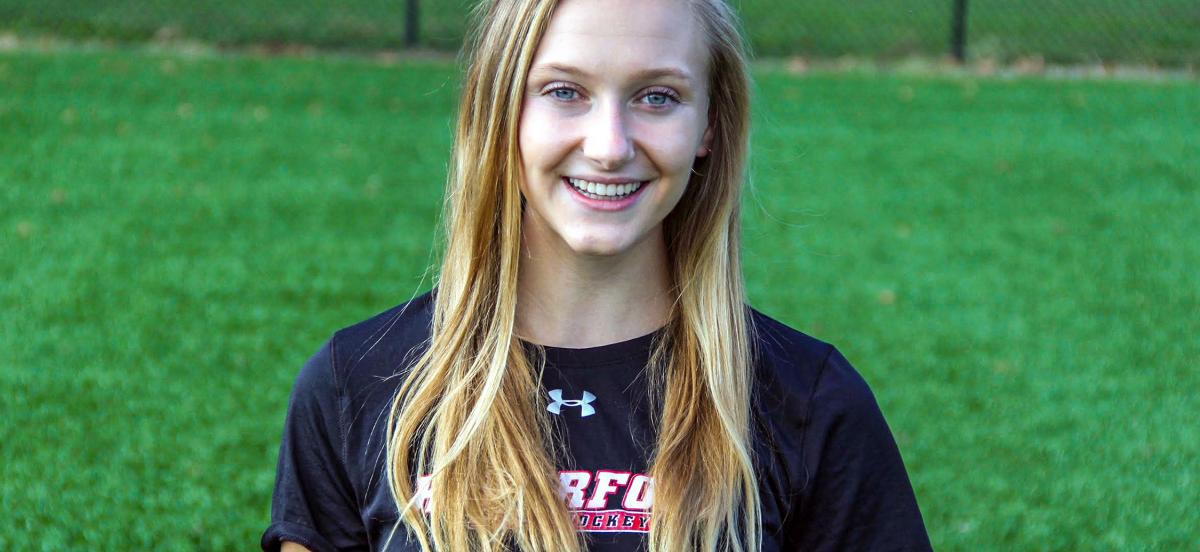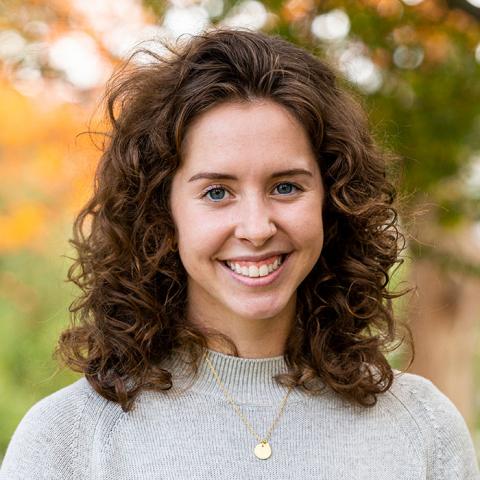Summer Centered: Julie Post ’22 Learns About and Advocates for Indigenous Rights

Julie Post is an anthropology major and health studies minor from Ann Arbor, Michigan.
Details
Sponsored by the Center for Peace and Global Citizenship, the anthropology major is working as an advocacy intern at Cultural Survival.
This summer, Julie Post ’22, an anthropology major and health studies minor, is working as an advocacy intern at Cultural Survival, an Indigenous-led nonprofit fighting to protect Native communities, lands, rights, and cultures. The internship is sponsored by the Center for Peace and Global Citizenship.
Post became interested in work around Indigenous knowledge systems and rights during her training to become a doula in 2019, or a trained companion before, during, and after the birth process. Many of the methods and ideologies in her training drew on Indigenous traditions.
“It then became very important to me to learn more about the communities that hold this sacred knowledge and the threats they constantly navigate to the survival of their knowledge, culture, and persons,” she said. “Interning with Cultural Survival seemed like the perfect way to not only learn more about the background of such important knowledge about birth and so many other things but also to contribute to the effort to protect such knowledge from the extinction that follows as a consequence of settler-colonial violence.”
In her work as an intern, Post has been gathering and reporting Indigenous people’s thoughts about the Biden-Harris administration's plan to conserve 30% of U.S. lands and waters by 2030.
“It has the potential to create meaningful opportunities of government-to-government consultation that incorporates Indigenous knowledge systems as a part of the solution to the climate crisis,” said Post, “but given the history of land conservation in the past, also poses a possible threat of undermining Native sovereignty by designating more land as 'public' and federally managed, therefore dispossessing Indigenous communities of their ancestral lands and resources.”
Post says it is important to consider whose voices are heard and how in such policy discussions. In her classes and internship, she’s learned about how time and time again, Indigenous voices are ignored by authorities and governments when they present ideas and solutions that benefit Native and non-Native communities.
“A common struggle, while trying to be heard, has been the decision to simplify and essentialize the messages Indigenous people are trying to communicate for the sake of translation into legalese and compatibility with human rights documents which may grant these communities more success in being heard, but also costs them the loss of the great nuance and full representation of themselves and their voices,” she said.
Post’s favorite part of her internship so far has been learning from other interns and staff.
“Everyone has come to this work with such unique backgrounds and expertise!” she said. “It's so inspiring to see how such varied skillsets and passions can all be channeled productively and in harmony in the world of organizing and advocacy.”
Post is also taking an independent study course this summer with the University of Texas Austin Senior Research Fellow and Fellow of the Society for Applied Anthropology, Robbie Davis-Floyd, an anthropologist of birth and reproduction. She hopes the course will help her learn more about Indigenous advocacy and the anthropology of birth to complement her work with Cultural Survival.
“Summer Centered” is a series exploring our students’ campus-supported summer work.




